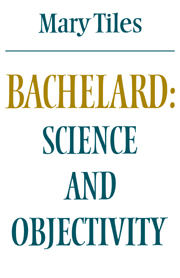Book contents
- Frontmatter
- Contents
- Editor's Introduction
- Preface (and Postscript)
- Acknowledgments
- Abbreviations
- 1 Philosophy of science: the project
- 2 Non-Cartesian epistemology and scientific objectivity
- 3 Non-Euclidean mathematics and the rationality of science
- 4 Non-Baconian science and conceptual change
- 5 The epistemology of revolutions – between realism and instrumentalism
- References
- Appendix: Biographical note
- Index
1 - Philosophy of science: the project
Published online by Cambridge University Press: 14 November 2009
- Frontmatter
- Contents
- Editor's Introduction
- Preface (and Postscript)
- Acknowledgments
- Abbreviations
- 1 Philosophy of science: the project
- 2 Non-Cartesian epistemology and scientific objectivity
- 3 Non-Euclidean mathematics and the rationality of science
- 4 Non-Baconian science and conceptual change
- 5 The epistemology of revolutions – between realism and instrumentalism
- References
- Appendix: Biographical note
- Index
Summary
What are the tasks of a philosophy of science? Without an answer to this question one can hardly assess the adequacy or otherwise of any proposed philosophy of science. But how is it that there should ever be doubt about this? The professional philosopher should surely have been supplied, at least tacitly, with the answer. To engage in the philosophy of science is to enter into discussion of those problems raised in journals and books explicitly devoted to the subject. To participate in the practice is implicitly to recognise the norms of the practice, to speak the language of philosophers of science. But what now if we encounter a ‘philosophy of science’ which does not engage in the dialogue; a philosophy whose concern is evidently with science, but whose problems and methods resist ready identification with those which have become familiar? Is it to be judged unsuccessful because it misconceives the problems and/or adopts inappropriate methods for their solution? But on what grounds can any such normative judgement be founded? Surely our own conception of the discipline can also be subjected to scrutiny. An attempt can be made to explicate the nature of the practice in which we have been engaged. In doing so we might hope to see the relation between the two sets of concerns and thereby create the possibility of dialogue between them.
- Type
- Chapter
- Information
- Bachelard: Science and Objectivity , pp. 1 - 27Publisher: Cambridge University PressPrint publication year: 1984



